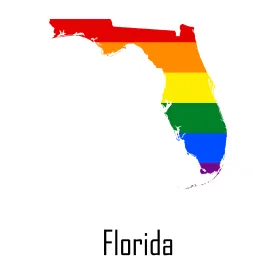There are two key cases pending before the U.S. District Court for the Northern District of Florida on Florida’s “Stop W.O.K.E. Act”: the Falls, et al. v. DeSantis, et al., matter (No. 4:22-cv-00166) and the Honeyfund.com, et al. v. DeSantis, et al., matter (No. 4:22-cv-00227). The Northern District of Florida has issued its first order on the Act, which went into effect on July 1, 2022.
In an Order Denying Preliminary Injunction, in Part, in the Falls matter, the court concluded that the K-12 teachers, the soon-to-be kindergartner, and the diversity and inclusion consultant who sued Governor Ron DeSantis and other officials to block the Stop W.O.K.E. Act did not have standing to pursue preliminary injunctive relief. The court reserved ruling pending additional briefing on the question of whether the college professor, who also sued, has standing.
Stop W.O.K.E. Act
The Stop W.O.K.E. Act expands an employer’s civil liability for discriminatory employment practices under the Florida Civil Rights Act if the employer endorses certain concepts in a “nonobjective manner” during training or other required activity that is a condition of employment.
Court Order
In the Falls case, a diverse group of plaintiffs claiming they were regulated by the Stop W.O.K.E. Act filed a lawsuit challenging the Act on the grounds that it violates their First and Fourteenth Amendment Rights to free expression, academic freedom, and to access information.
The court, however, did not reach the question of constitutionality. It also did not determine whether the case can move forward, an issue that will be decided when the court rules on the defendants’ pending motion to dismiss.
Instead, the court denied the plaintiffs’ request for a preliminary injunction on the threshold question of standing. It found the plaintiffs (other than the college professor) did not show they have suffered an injury-in-fact that is traceable to DeSantis or another defendant that can likely be redressed by a favorable ruling.
The court found the consultant is not an employer as defined by the Florida Civil Rights Act. Therefore, she could not assert standing on that basis. Instead, she argued she has third-party standing to assert the rights of the employers who would otherwise hire her, and she is harmed by the Act because employers will no longer hire her. The court rejected both theories, finding the consultant-employer relationship is not sufficiently “close” to create standing; employers are not hindered in raising their First Amendment rights on their own; and, based on the evidence presented, the court could not reasonably infer that the consultant has lost or will lose business because of the Act.
Importantly, the court specifically held that it was not ruling on the legality of the Act, whether it was moral, or whether it constituted good policy.
Private Employer
The court highlighted that the sister case pending in the Northern District of Florida (Honeyfund.com) involves a private employer under the Florida Civil Rights Act. In that case, the plaintiffs allege the Stop W.O.K.E. Act violates their right to free speech by restricting training topics and their due process rights by being unconstitutionally vague. Honeyfund.com, Inc. and its co-plaintiffs request that the court enjoin enforcement of the law. The case has been transferred to District Court Judge Mark Walker. The Honeyfund.com case will likely have the largest effect on Florida employers and questions surrounding the enforceability of the Act as to diversity and inclusion training.
***
Since the Stop W.O.K.E. Act took effect, employers are understandably unclear how to proceed with training. Employers should continue to train their employees, but review their training programs on diversity, inclusion, bias, equal employment opportunity, and harassment prevention through the lens of the new law. Employers should also ensure they train the trainers who are conducting these important programs. Finally, employers should understand potential risks associated with disciplining or discharging employees who refuse to participate in mandatory training programs, even if employers do not consider the programs to violate the new law.






 />i
/>i

